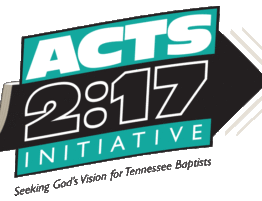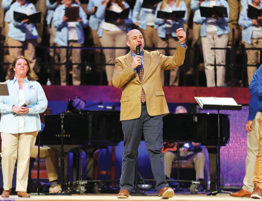 Everyone knows churches are tax-exempt entities. However, very few people understand what this really means, the various levels of taxation and how they apply to churches.
Everyone knows churches are tax-exempt entities. However, very few people understand what this really means, the various levels of taxation and how they apply to churches.
In simplest terms, there are three basic levels of taxing authority that impact Tennessee churches: (1) federal government, (2) Tennessee government and (3) local governments. This article deals with churches and their tax exemption from the federal government.
Churches are automatically considered tax-exempt entities under section 501(c)(3) of the Internal Revenue Code. This means two things. First, churches are exempt from paying federal income tax on funds donated to the church and from most funds that the church generates from activities. There are occasions, as discussed below, when funds generated by the church do create a taxable situation. Second, donors may report, on their annual tax return, gifts made to the church as deductible charitable contributions.
Churches do not need to apply for a determination letter to be exempt. However, it is often necessary for a church to have a determination letter issued by the IRS documenting the church’s exemption under section 501(c)(3). To this end, the IRS has provided a determination letter to the Tennessee Baptist Convention that clearly stipulates the TBC and all affiliated churches are covered by this determination letter. Churches that need a copy of this letter, and meet the Cooperative Program contribution requirements found in the Constitution of the Tennessee Baptist Convention, may request one from my office by emailing jsheffield@tnbaptist.org.
The federal tax exemption awarded to churches does come with some restrictions. The following is a brief explanation of the more common activities where tax-exempt organizations are limited or prohibited by law.
1. Private inurement – Churches, and other tax exempt organizations, are prohibited from allowing any use of the organization’s funds for private inurement. Private inurement means the distribution of assets to individuals that are more than reasonable compensation for the goods and services provided. The penalty for inurement can be revocation of the organization’s tax status or excise benefit taxes on the individuals receiving the benefits and the church.
2. Political activity – The support of, or opposition to, candidates for public office is prohibited for 501(c)(3) organizations. This would include holding clearly biased political rallies or candidate forums, producing biased voter information guides and other partisan activity. Clearly non-partisan activities are permitted but should be conducted with knowledgeable professional advice. While rare, the penalty is revocation of exempt status.
3. Lobbying and legislative activity – Churches are permitted to speak to issues and to influence legislation, provided that it remains a very limited portion of the church’s overall expenditures and activities. Churches should always seek competent legal advice before addressing specific legislative issues. This should not be seen as a prohibition on a pastor speaking to social issues from the pulpit.
4. Unrelated business income – Income generated from an ongoing activity that looks like a trade or business may be considered unrelated business income. Such income must be reported to the IRS and may result in a need to pay income taxes. Ordinary and necessary expenses related to the income can be deducted before calculating the taxes due. The rules for determining unrelated business income are complex and even somewhat quirky. Churches should consult with competent tax advisors to determine if income from an activity might trigger unrelated business income.
This article is intended to provide a brief overview of the topic discussed. Neither the author nor the Executive Board is providing legal advice. Churches should always seek the advice of competent legal, accounting and professional counsel when dealing with legal and tax matters.
William F. Maxwell is Administrative Director for the Tennessee Baptist Convention. To connect with William about these and other church administration issues, email him at wmaxwell@tnbaptist.org. Look for future articles on state tax issues and local property tax issues.








